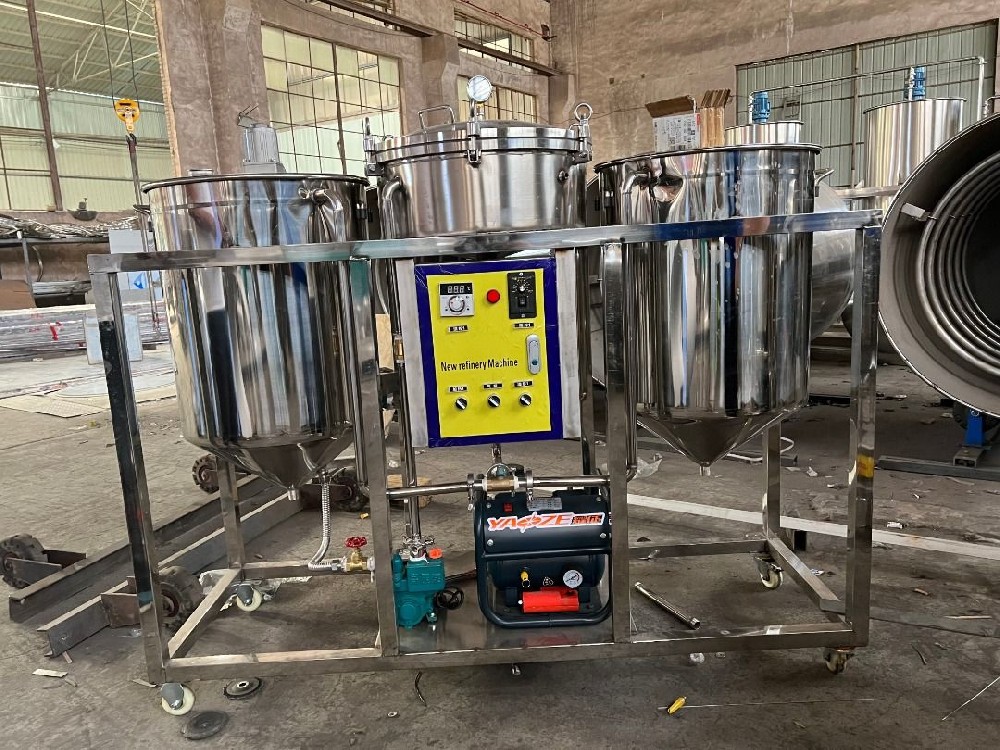Small refining equipment is used to heat and stir the crude oil (peanut oil, rapeseed oil, tea seed oil, soybean oil, sunflower seed oil, sesame oil, walnut oil, sesame oil and other edible oils) for hydration, degumming, deacidification, bleaching and deodorization.
1. Hydration degumming. Hydration degumming is a kind of degumming that uses the hydrophilicity of colloidal impurities such as phospholipids to add a certain amount of water or dilute electrolyte solution into the crude oil under stirring, so that the colloidal impurities in the crude oil can absorb water, expand, agglomerate and separate. In the process of hydration degumming, phospholipids are the main substances that can be coagulated and precipitated, in addition to proteins, mucus and trace metal ions that combine with phospholipids.
2. Alkali refining and deacidification: unrefined crude oil contains a certain amount of free fatty acids. The process of removing free fatty acids from oil is called deacidification. Deacidification includes alkali refining, distillation, solvent extraction and esterification. Alkali refining and steam distillation (i.e. physical refining) are widely used in industrial production
3. Oil decolorization, oil adsorption decolorization, refers to the use of certain substances (such as bleaching soil, activated clay, activated carbon, etc.) with strong selective adsorption on pigments to adsorb pigments and other impurities in oil under certain conditions, so as to achieve the purpose of decolorization. The oil treated with adsorbent can not only improve oil color and remove gum, but also effectively remove some trace metal ions in the oil and some substances that can cause hydrogenation catalyst poisoning, thus providing good conditions for further hydrogenation and deodorization of the oil.
4. Oil deodorization, oil deodorization refers to the process of distilling deodorant substances with water vapor under high temperature and vacuum conditions by taking advantage of the difference between the volatilization of odor substances in oil and triglyceride.
Treatment effect:
The grease treated by the refiner is transparent in color, free of sediment, foam and lampblack after long-term storage. It can be directly filled and sold, and is suitable for processing with supplied materials and small-scale grease processing plants

 WeChat / WhatsApp
WeChat / WhatsApp
 Online messageIf you have any questions, please leave a message here to tell us, we will contact you in time!
Online messageIf you have any questions, please leave a message here to tell us, we will contact you in time! Products
Products









 Online service
Online service Telephone
Telephone Message
Message